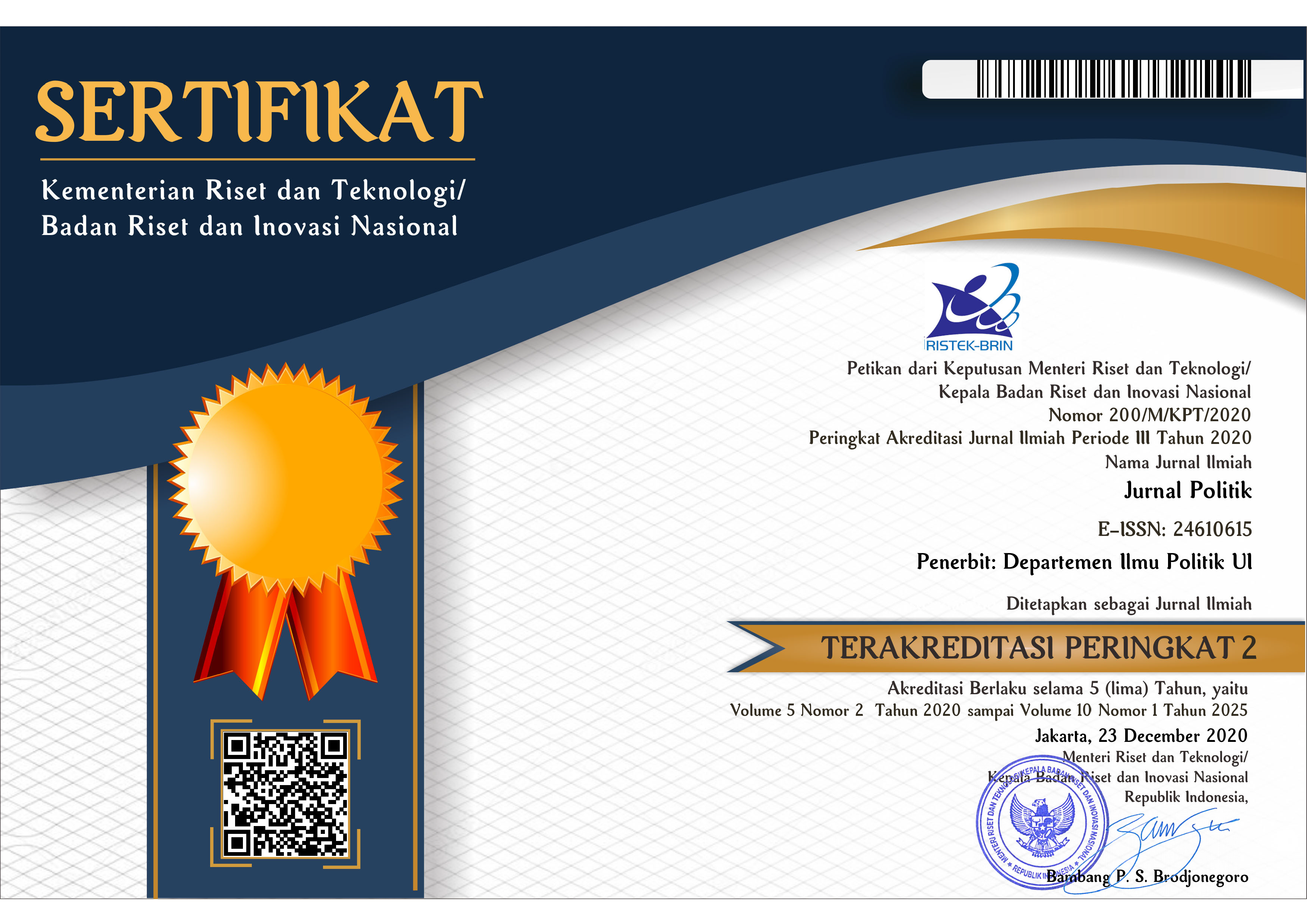Abstract
This research was motivated by variety of understandings of political activities in villages. The article argues that village is considered as the embrio for the formation of political society and government in Indonesia, which is also the basis for this democratic nation. This consideration can be seen from the activities of village’s headman elections. Headman election is a political activity that shows how democratic process can take place in village level. Therefore, headman elections cannot be eparated from the dynamic development of the political situation in the village. It is not merely a power struggle within the leadership’s succession in the village or the campaign strategy applied to gain support from the wider community, but more than that it is all about prestige, dignity and honor. So for the villagers, the headman election is more emotional and rational in comparison with other elections such as local elections, even presidential elections. This research examines the Headman Election with direct analysis of three villages with different typologies. They villages are Neglasari Village in Salawu, Tasikmalaya (Traditional Village); Cimekar Village in Cileunyi, Bandung (Transitional Village); Cipacing Village in Jatinangor, Sumedang (Modern Village). Those three villages are located in the province of West Java. The result shows that practice of democracy in those three villages has worked partly according to some ideal criteria of democracy, nevertheless has not worked yet in some others criteria.
Recommended Citation
Yuningsih, Neneng Yani and Subekti, Valina Singka
(2016)
"Demokrasi dalam Pemilihan Kepala Desa? Studi Kasus Desa Dengan Tipologi Tradisional, Transisional, dan Modern di Provinsi Jawa Barat Tahun 2008-2013,"
Jurnal Politik: Vol. 1:
Iss.
2, Article 2.
DOI: 10.7454/jp.v1i2.1121
Available at:
https://scholarhub.ui.ac.id/politik/vol1/iss2/2


